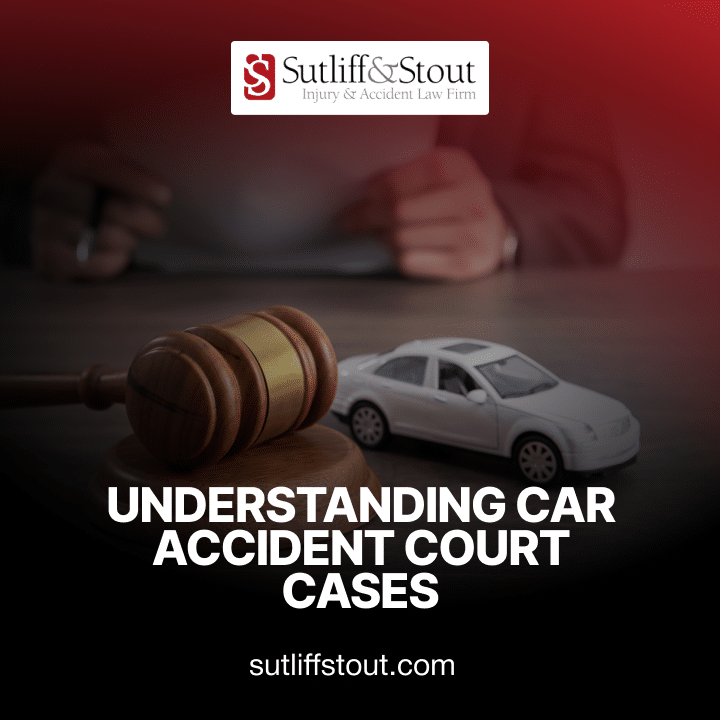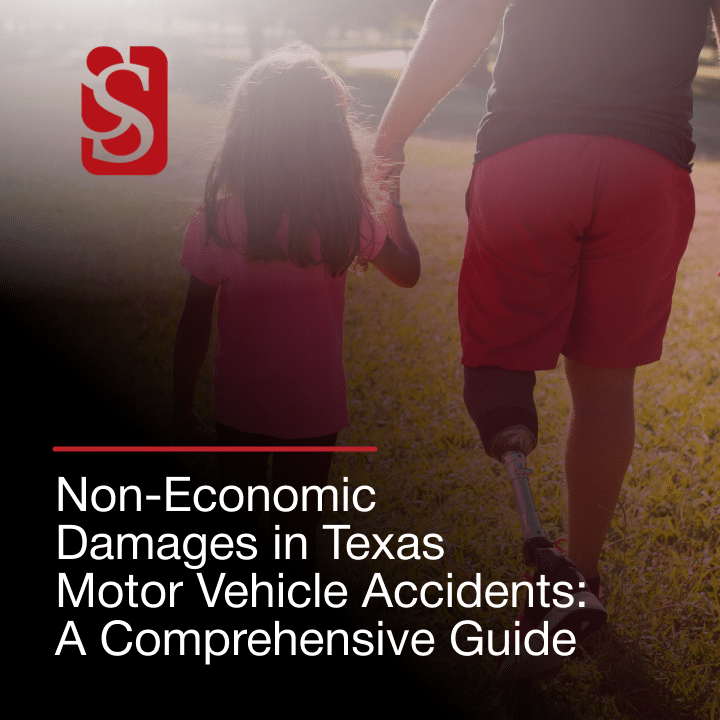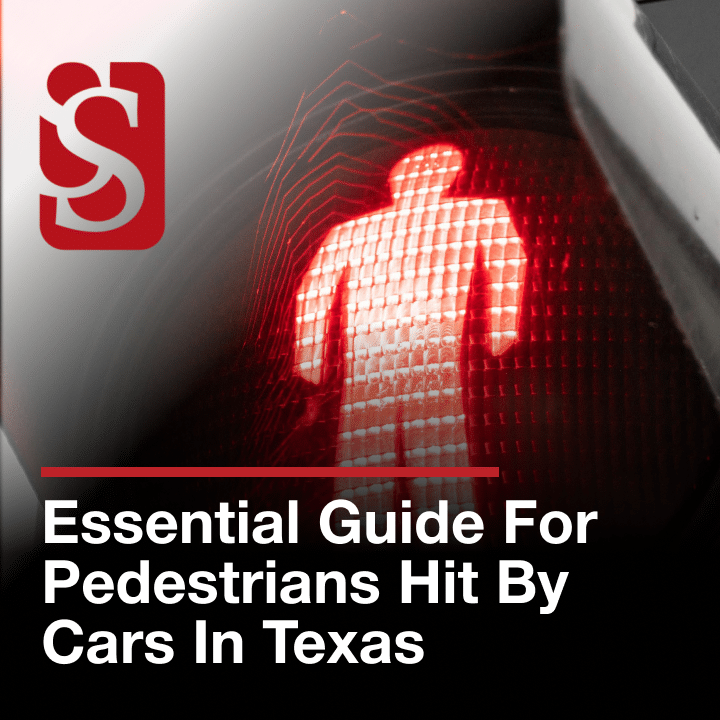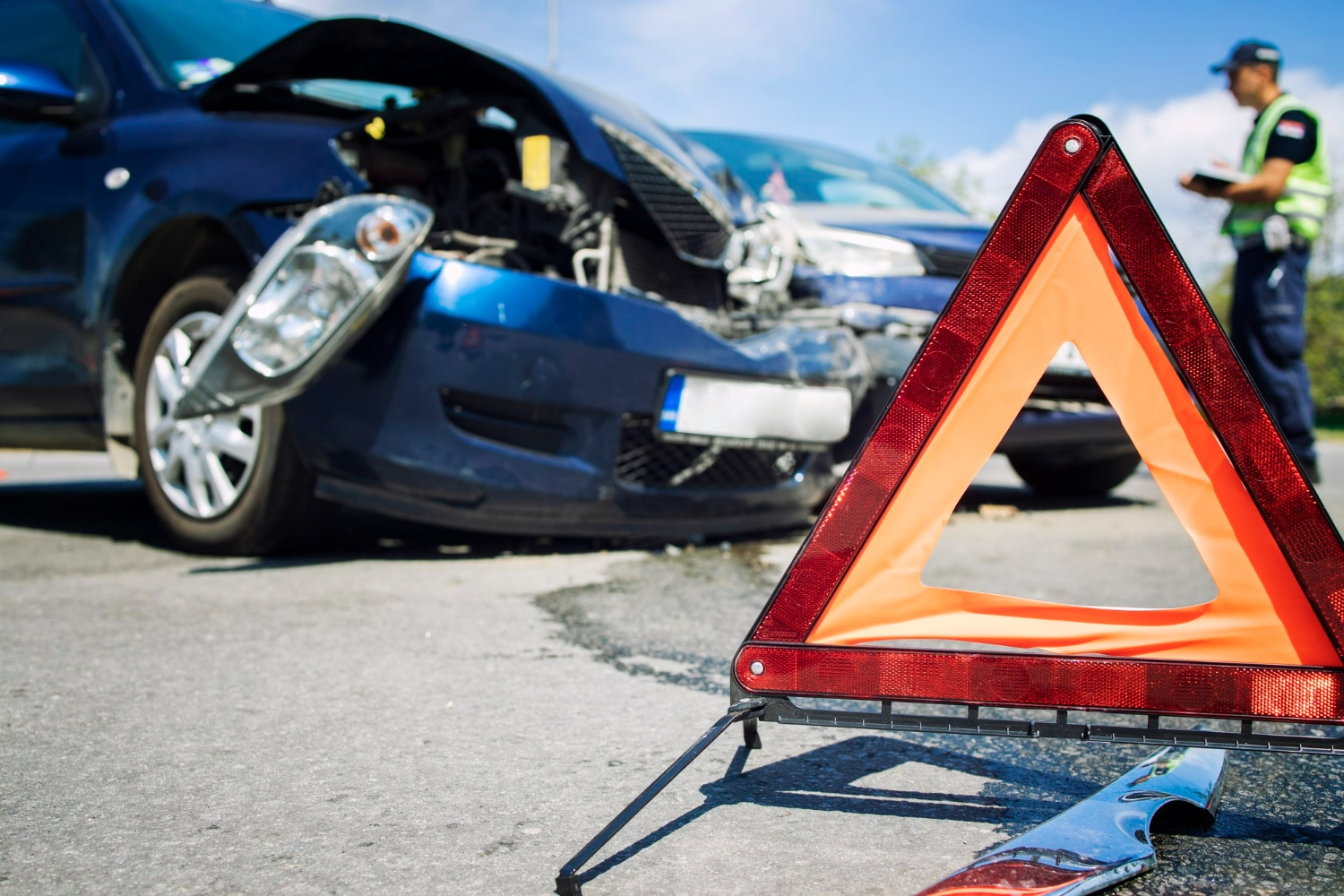
Being involved in a car accident can be a life-altering experience, especially when the incident leads to a court case. At Sutliff & Stout, we understand that navigating the legal system after a collision can feel overwhelming. Our experienced car accident attorneys have guided countless clients through car accident litigation, and we're committed to helping you understand what to expect during this challenging time.
What Is a Car Accident Court Case?
A car accident court case is a legal proceeding where parties involved in a vehicular collision seek to resolve disputes about liability and compensation through the judicial system. These cases typically arise when insurance negotiations fail to produce a fair settlement, or when the damages exceed insurance policy limits.
At Sutliff & Stout, we recognize that most people have little experience with the court system until they're suddenly thrust into it following an accident. These cases can range from relatively straightforward proceedings in small claims court to complex jury trials involving multiple parties, expert witnesses, and substantial damages.
How Do Car Accident Court Cases Begin?
The journey through the legal system starts with formal documentation that establishes the positions of both parties and notifies the court of the dispute. Understanding these initial steps is crucial for anyone considering legal action after a car accident.
Filing a Lawsuit: Initiating Legal Action
The legal process officially begins when the injured party (plaintiff) files a petition or complaint with the appropriate court. At Sutliff & Stout, we carefully prepare this document to outline the basic facts of the accident, identify the responsible parties, establish the legal basis for your claim, and specify the damages you're seeking.
This petition must be filed within Texas's statute of limitations—typically two years from the date of the accident. Once filed, the court issues a summons that, along with the petition, must be properly served to the defendant according to Texas legal procedures.
Responding to a Lawsuit: Defendant's Answer
After being served, the defendant has a limited time (usually 20 days in Texas) to file an answer to the lawsuit. This response typically admits or denies each allegation in the plaintiff's petition and may raise legal defenses or counterclaims.
Sutliff & Stout's experienced litigation team anticipates potential defenses and prepares accordingly. If the defendant fails to respond within the allotted time, we can request a default judgment in your favor.
What Are the Types of Damages That Can Be Claimed?
When pursuing compensation through a car accident court case, it's important to understand the different categories of damages available under Texas law. At Sutliff & Stout, we work diligently to ensure our clients seek appropriate compensation for all applicable damages.
Economic Damages: Medical Bills, Lost Wages
Economic damages represent the tangible, calculable financial losses resulting from your accident. These include:
- Past and future medical expenses
- Lost income and reduced earning capacity
- Property damage
- Rehabilitation costs
- Transportation to medical appointments
- Necessary home modifications
Sutliff & Stout thoroughly documents these expenses to build a comprehensive claim that accounts for both current and anticipated future costs.
Non-Economic Damages: Pain and Suffering, Emotional Distress
Non-economic damages compensate for intangible losses that significantly impact your quality of life but don't have a specific dollar value. These include:
- Physical pain and suffering
- Emotional and psychological distress
- Loss of enjoyment of life
- Disfigurement and scarring
- Loss of consortium (impact on marital relationship)
The car accident attorneys at Sutliff & Stout have extensive experience translating these profound personal losses into fair monetary compensation that acknowledges the full impact of your injuries.
Punitive Damages: Punishing Defendant's Misconduct
In cases involving particularly egregious behavior, Texas law permits the awarding of punitive (or exemplary) damages. Unlike compensatory damages, punitive damages aim to punish the wrongdoer and deter similar conduct in the future.
Sutliff & Stout pursues punitive damages in appropriate cases, such as those involving drunk driving, extreme recklessness, or malicious intent. However, Texas law sets specific requirements and caps for punitive damages that our attorneys can explain during your consultation.
What Is the Role of Evidence in Car Accident Court Cases?
Evidence forms the foundation of any successful car accident case. Without compelling evidence, even the most devastating injuries may go uncompensated.
At Sutliff & Stout, we understand that effective evidence collection begins immediately after an accident and continues throughout your case. Our experienced legal team gathers and preserves crucial evidence including:
- Police reports and accident scene documentation
- Witness statements and testimony
- Medical records and expert opinions
- Accident reconstruction analysis
- Vehicle damage assessments
- Traffic camera or surveillance footage
- Cell phone records (in distracted driving cases)
- Employment and income verification for wage loss claims
We employ advanced techniques and work with specialized experts to analyze this evidence, establishing a clear narrative of liability and damages that supports your claim in court.
How Does the Concept of Negligence Affect Car Accident Court Cases?
Negligence is the legal theory underlying most car accident cases. To succeed in court, you must establish that another party's negligence directly caused your injuries. Sutliff & Stout's attorneys excel at proving each element of negligence required under Texas law.
Duty of Care: Legal Obligation to Avoid Causing Harm
All drivers have a legal duty to operate their vehicles with reasonable care to prevent harm to others. This includes following traffic laws, maintaining proper control of the vehicle, and staying alert to road conditions and other motorists.
Sutliff & Stout establishes this duty as the foundation of your case, demonstrating the responsibilities the defendant had while driving.
Breach of Duty: Failure to Meet the Duty of Care
A breach occurs when someone fails to uphold their duty of care. Common breaches in car accident cases include:
- Speeding or driving too fast for conditions
- Distracted driving (texting, using apps, etc.)
- Running red lights or stop signs
- Failing to yield right-of-way
- Driving under the influence of alcohol or drugs
- Following too closely
- "But for" causation: The accident wouldn't have happened but for the defendant's actions
- Proximate cause: The injuries were a foreseeable result of the negligent behavior
- Conducting thorough accident investigations
- Gathering and preserving critical evidence
- Identifying all potentially liable parties
- Accurately valuing your current and future damages
- Managing all communications with insurance companies
- Filing court documents correctly and on time
- Negotiating strategically for maximum compensation
- Preparing compelling trial presentations
- Advocating passionately for your interests in court
- Handling post-trial procedures and potential appeals
- Understanding Motorcycle Accident Claims and Settlements - July 15, 2025
- Bicycle Accident Compensation: What You Need To Know - July 3, 2025
- Understanding Wrongful Death Compensation in Texas: Types and Eligibility - June 15, 2025
Our legal team at Sutliff & Stout investigates thoroughly to identify and document all potential breaches that contributed to your accident.
Causation: Linking the Breach to the Accident
It's not enough to prove someone acted negligently—you must also establish that their negligence directly caused the accident and your injuries. This often requires demonstrating both:
Sutliff & Stout works with accident reconstruction specialists and medical experts to establish these crucial causal connections.
Damages: Proving the Accident Caused Losses
Finally, you must demonstrate that you suffered actual damages as a result of the accident. This includes documenting your economic and non-economic losses as discussed above.
At Sutliff & Stout, we build comprehensive damages claims supported by medical evidence, expert testimony, and detailed documentation of all losses our clients have endured.
What Is Modified Comparative Negligence?
Texas follows a "modified comparative negligence" rule with a 51% bar. This means that if you're partially at fault for the accident, your compensation may be reduced—and if you're found to be more than 50% responsible, you may be barred from recovering damages entirely.
At Sutliff & Stout, we understand how insurance companies and defense attorneys use this rule to attempt to minimize or eliminate your compensation. They may try to shift blame onto you, even when evidence suggests otherwise. Our experienced attorneys anticipate these tactics and develop strategies to counter allegations of shared fault.
We conduct thorough investigations to demonstrate the defendant's primary responsibility for the accident while minimizing any potential contribution on your part. This approach helps maximize your potential recovery under Texas law, even in complicated liability scenarios.
How Are Settlements Negotiated in Car Accident Court Cases?
While many car accident cases go to court, the vast majority are resolved through settlement before trial. Understanding the settlement process is essential for accident victims seeking fair compensation without the uncertainty of a trial.
Mediation: Facilitated Negotiation by a Neutral Third Party
Mediation involves working with a neutral mediator—often a retired judge or experienced attorney—who helps facilitate discussion and compromise between parties. In Texas, courts frequently order mediation before allowing cases to proceed to trial.
The auto accident attorneys at Sutliff & Stout prepare thoroughly for mediation, presenting compelling evidence and arguments while maintaining realistic expectations. While mediators don't impose decisions, they help bridge gaps and find common ground that might lead to a settlement.
Arbitration: Binding Decision by a Third Party
Unlike mediation, arbitration involves a third-party arbitrator who hears evidence and makes a binding decision. This process is less formal than a trial but still allows both sides to present their case.
At Sutliff & Stout, our legal team carefully evaluates whether arbitration serves our clients' interests in each unique case. While arbitration can offer a faster resolution than a trial, the limited appeal options make careful preparation essential.
Direct Negotiation: Between Parties' Attorneys
Many settlements occur through direct negotiation between the attorneys representing each party. These negotiations may happen at any point—from immediately after the accident to the eve of trial.
At Sutliff & Stout, our car wreck lawyers approach negotiations strategically, armed with thorough case preparation and a clear understanding of your case's value. Our reputation as skilled trial attorneys often motivates defendants to offer fair settlements rather than face us in court.
What Happens During a Car Accident Trial?
When settlements cannot be reached, a trial becomes necessary. While relatively few car accident cases go to trial, our legal team prepares every case as if it will, ensuring we're always ready to advocate effectively in the courtroom.
Opening Statements: Outline of the Case to the Jury
Trials begin with each side presenting an opening statement that outlines their version of the case. These statements provide a roadmap of the evidence and arguments the jury will hear.
Our car accident lawyers craft compelling opening statements that clearly establish the defendant's liability and preview the evidence supporting your claim for damages.
Presentation of Evidence: Introducing Evidence to Support Claims
Both parties present evidence through witness testimony, expert opinions, and physical or documentary evidence. Each witness may be cross-examined by the opposing attorney.
Our attorneys at Sutliff & Stout thoroughly prepare all evidence and witnesses, anticipating potential challenges and ensuring your case is presented effectively and persuasively.
Closing Arguments: Summarizing the Case for the Jury
After all evidence has been presented, each side makes closing arguments that summarize the evidence and explain why the jury should find in their favor.
Our experienced trial lawyers deliver powerful closing arguments that connect the evidence to the legal standards the jury must apply, making a compelling case for a verdict in your favor.
Jury Deliberation and Verdict: Deciding the Outcome
Following closing arguments and the judge's instructions on the law, the jury deliberates in private until reaching a verdict. This deliberation may last hours or days, depending on the complexity of the case.
At Sutliff & Stout, our car accident lawyer’s detailed preparation and clear presentation of evidence aim to provide the jury with everything they need to return a favorable verdict.
What Are the Possible Outcomes of a Car Accident Court Case?
Car accident litigation can conclude in several ways, each with different implications for the parties involved. Understanding these potential outcomes helps set realistic expectations.
Judgment for the Plaintiff: Defendant Pays Damages
If the jury finds in your favor, they will determine the amount of damages to be awarded. The court then enters a judgment ordering the defendant to pay this amount.
At Sutliff & Stout, we not only work to secure favorable verdicts but also assist with post-judgment procedures to help ensure you actually receive the compensation awarded.
Judgment for the Defendant: Plaintiff Receives No Damages
If the jury finds for the defendant, you typically receive no compensation and may be responsible for certain court costs. However, there may be grounds for appeal in some circumstances.
At Sutliff & Stout, we minimize this risk through thorough case preparation and realistic assessment of your claim's strengths and weaknesses from the outset.
Settlement Before Verdict: Agreed Compensation Without Trial
Many cases settle during trial, often after key evidence is presented or when the trajectory of the case becomes clear. These settlements provide certainty without waiting for a jury verdict.
Our attorneys remain open to favorable settlement opportunities throughout trial while continuing to advocate vigorously for your interests.
How Can an Attorney Help in a Car Accident Court Case?
Handling a car accident court case without professional legal representation can significantly reduce your chances of obtaining fair compensation. The legal process is complex, and insurance companies and defendants have experienced attorneys working to minimize their liability.
At Sutliff & Stout, our dedicated legal team provides comprehensive support throughout your case:
Our attorneys combine deep legal knowledge with genuine compassion for car accident victims. We understand the physical, emotional, and financial toll accidents take on victims and their families, and we're committed to easing that burden through dedicated legal representation.
Let Us Fight for You – Schedule a Free Consultation Today!
If you've been injured in a car accident in Texas, don't face the complex legal system alone. At Sutliff & Stout, we believe everyone deserves skilled legal representation regardless of their financial situation. That's why we offer free, no-obligation case evaluations to help you understand your options.
Our experienced car accident attorneys will review the details of your case, explain the legal process in plain language, and outline potential strategies for securing the compensation you deserve. We handle cases on a contingency fee basis, meaning you pay nothing unless we win your case.
Don't let valuable time slip away. Texas law imposes strict deadlines for filing car accident claims, and crucial evidence may disappear if not promptly secured. Contact Sutliff & Stout today to schedule your free consultation and take the first step toward justice and fair compensation.








 (713) 405-1263
(713) 405-1263  550 Post Oak Blvd, Suite 530
550 Post Oak Blvd, Suite 530